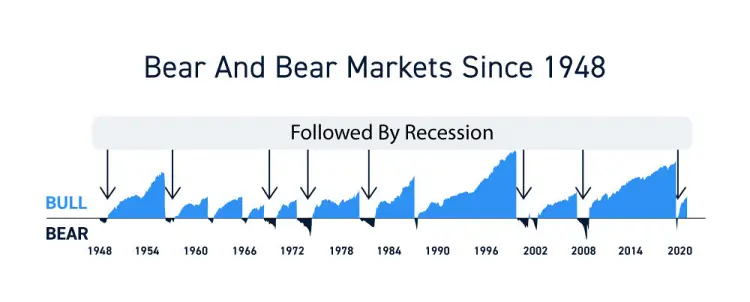A bull market is a market in which prices are rising and optimism is high. A bull market is typically characterized by increasing volumes of trade and an expansion of the money supply. Unlike a bear market, it is associated with economic growth, rising corporate profits and falling unemployment.
What is a Bull Market? (Definition #2)
A bull market is a period of time when the prices of stocks are rising and investors are optimistic about the future of the stock market. The phrase “bull market” comes from the way a bull attacks its prey – by thrusting its head and horns upwards to knock the animal off balance. In the same way, a bull market is characterised by investors throwing their money into stocks in the hope that they will make a quick profit.
Characteristics of a bull market
A bull market is typically characterized by an increase in the prices of stocks and other securities, as well as a general rise in business confidence. In a bull market, investors are typically more optimistic about the future, and are more willing to take risks. This can lead to increased investment and speculation, which can drive volatility and stock prices even higher.
It’s important to note that not all stocks will rise during a bull market – some will fall in value while others remain unchanged. The key is that the overall market is trending upwards.
When does a bull market start?
There is no one definitive answer to this question. Some people say a bull market starts when the stock market reaches a new high, while others believe it begins when the economy shows signs of improvement. Many experts say that a bull market starts when there is widespread optimism among investors.
In order for a bull market to form, there must be a significant change in sentiment among investors – from pessimism to optimism. This change in sentiment can be sparked by positive news or expectations about the future, such as improving economic conditions or rising corporate profits.
How long does a bull market last?
Bull markets can last for years, but eventually they come to an end. No one knows when the end will come, but it’s important to be prepared for it. The best way to prepare is to make sure your portfolio is diversified and that you have a plan in place for when the market does turn sour.
What triggers the end of a bull market?
A bull market starts when the economy is doing well and there is optimism about the future. The stock market usually starts to go up a few months before the economy improves. There are several factors that can trigger a bull market.
Some of the most common triggers for a bull market are:
- Low interest rates.
- Good economic news.
- Increasing profits.
- Rising corporate profits.
What effects a bull market has on the economy
Unlike a bear market, a bull market generally lasts for several years and can be accompanied by strong economic growth along with quantitative easing (QE) policies that inject money into the market.
> See also: What is QT or quantitative tightening?
How to benefit from investing in a bull market
- In a bull market, stock prices are generally on the rise. This presents opportunities for investors to make money by buying stocks when they are low and selling them when they are high.
- Additionally, dividends tend to be higher in bull markets as companies compete to attract investors.
- Another benefit of investing in a bull market is that stocks tend to be more stable, meaning there is less risk of losing money if the market takes a downturn.
- Finally, during a bull market, it is typically easier to get loans since stock prices are rising. This can allow investors to borrow money to invest in even more stocks, which can lead to even greater profits.
In conclusion, a bull market is a time when the stock market is doing well and prices are increasing. This usually happens when the economy is doing well and investors are optimistic about the future. A bull market can be a good time to invest in stocks, but it’s important to do your research first.
Related with Bull Markets:
